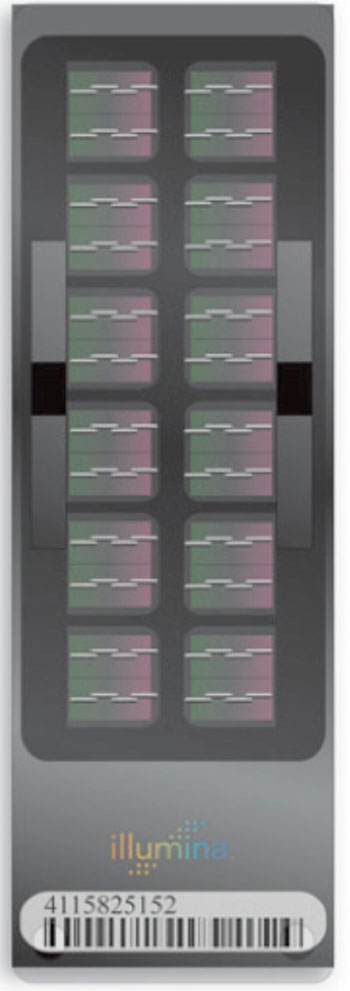Genetic Data Predicts LDL Cholesterol Response to Statins
By LabMedica International staff writers
Posted on 16 Oct 2014
Genomic data could predict whether statins will benefit a patient or not, and this data alone can explain around 15% of patients' responses to a low density lipoprotein cholesterol (LDLC) lowering drugs. Posted on 16 Oct 2014
Statins are used to try to lower patients' levels of cholesterol, a type of fat which is carried in the blood and can block arteries. While they reduce rates of heart disease in many patients, clinicians have debated whether they should be prescribed widely, because they have significant side-effects which some argue outweigh the benefits.

Image: The Human1M-Duo BeadChip for DNA analysis (Photo courtesy of Illumina).
Scientists at Children's Hospital Oakland Research Institute (Oakland, CA, USA) studied 372 participants in an American clinical trial for the statin, Simvastatin. Fasting plasma was collected at two pre-treatment time points (screening visit and enrollment visit) and at two post-treatment time points (four and six weeks of treatment). Because LDLC levels were not significantly different between screening and enrollment, the average of these two measurements was used as the pretreatment LDLC value to minimize technical variation. For the same reason, the average of four and six week measurements was used as the post-treatment LDLC value.
Gene expression levels were measured using the Human-Ref8v3 beadarray (Illumina; San Diego, CA, USA) in 480 lymphoblastoid cell lines (LCLs) derived from Caucasian American participants in the study. Genotyping was performed on 304 samples with Illumina’s HumanHap300 or 208 samples on Illumina’s HumanHap610-Quad BeadChips. Expression levels of each gene were then quantile normalized, adjusted for known covariates, date, ribonucleic acid (RNA) labeling batch, beadarray hybridization batch, and gender and quantile normalized again.
The scientists found that found that differences in around 100 genes could explain 12% to 17% of the variation in how effectively the statin lowered patients' LDL-cholesterol. The genes were particularly accurate in predicting the patients that responded very well or very poorly to the treatment. Some of these genes were involved in cholesterol metabolism, but further studies are needed to find out about the function of the others.
The authors concluded that transcriptomic information can explain a substantial proportion of the variance in LDLC response to statin treatment, and suggest that this may provide a framework for identifying novel pathways that influence cholesterol metabolism. The study was published on September 30, 2014, in the journal Genome Biology.
Related Links:
Children's Hospital Oakland Research Institute
Illumina













